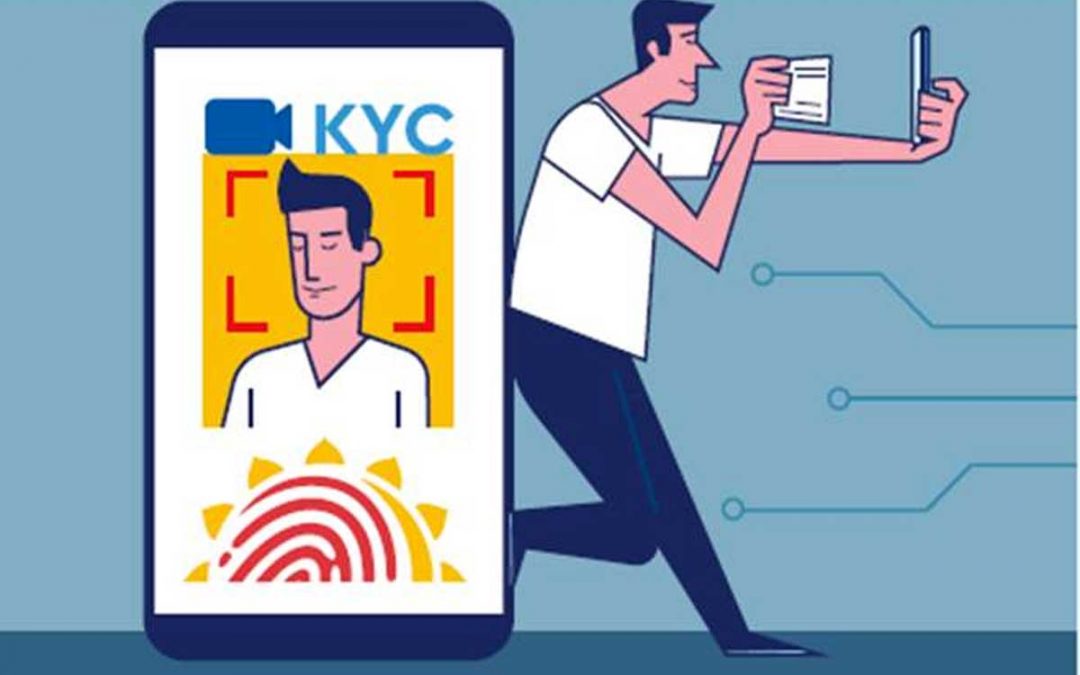Know Your Customer (KYC) is a mandated service required by banks and other financial institutions before providing any kind of financial services. The sole purpose of KYC is to establish the identity of the requesting individual and verify their credentials with the record. In earlier times, KYC used to be a physical process where you need to be present at the office physically and fill out a physical form for verification. But it caused a lot of hassle for the customer, and many a-times, the customer, had to travel to different cities to get their KYC done. The good thing is that with technology adaptation in the financial processes, the whole KYC has been made very easier and user-friendly. Now the financial institutions can verify your KYC electronically through the Aadhaar database and provide you with requested services. Check more details about the E-KYC in this article.
Understanding e-KYC:
e-KYC is the aadhaar based KYC process where your identity is established electronically by matching your credentials with the Aadhaar database. The whole e-KYC depends on you providing your 12 digit Aadhaar number and getting it seeded with the bank and financial institutions. Apart from banks, if you are planning to invest in mutual funds or stocks through the brokerage firms like HTPL, you will need to get your e-KYC done, which again is a seamless and fast process. Once you provide your Aadhaar and PAN details, it is verified with the already existing UIDAI database through the e-KYC API used by the fund houses. Once the information is retrieved from UIDAI databases, they are matched with your provided details to grant you authorisation access for your requested services.
Types of e-KYC verification:
There are two types of e-KYC verification processes that you can avail of when requesting any financial services from banks and other institutions.
- KYC Verification using biometrics: The biometrics data is the same data stored when you applied for your Aadhaar card. Since the biometrics for every person is unique and doesn’t change with time, it is one of the safest methods of e-KYC. For biometrics, either your iris scan or fingerprint scan is done by the institution. Although to get this verification done, you need to step out to the office/ biometric verification facility.
- KYC Verification through OTP: This is the easiest case of e-KYC as you will receive an OTP when you request the service. The OTP will arrive in your registered mobile number, which you need to fill to be granted service access.
Who can use e-KYC services?
Any citizen of India who wishes to avail of any financial service from any banks or financial institutions is required to process their KYC. Hence these people need to validate their identity, which is only possible once they have their Aadhaar card made that validates the citizens with biometrics. Any authorized agent/ service provider or certified institution can use e-KYC verification services upon request.
Benefits of E-KYC
- Instantaneous: Since the whole verification process is automated using fast servers, the identification and verification process via e-KYC is almost instantaneous. No physical data is needed to be shared in real-time other than the OTP or biometrics.
- Reduces Fraud: Since the identification is based on a permanent person’s biometrics, the chances for fraud are very minimal. If the person is rational and aware of online frauds, he/ she will rarely get into these traps. In addition, more reliable digital platforms help mitigate the possibilities of online theft, corruption and more.
- Improve customer experience: With time and technology, there is a paradigm shift in the role of banks as service providers. Apart from their financial services, they are now also required to maintain a healthy relationship with the client who is possible when they give the best and hassle-free services to the customers.
- Improves operational effectiveness: Digitalisation and e-KYC improves operational effectiveness by making a smooth transition of services for the customers.
Conclusion:
e-KYC processes have helped the financial industry as well as customers in forging a strong and safe relationship. The safe and fast customer verification has enabled many services to be made available to the customers almost instantaneously. In addition, it results in time management and better productivity rate among individuals and organisations.




